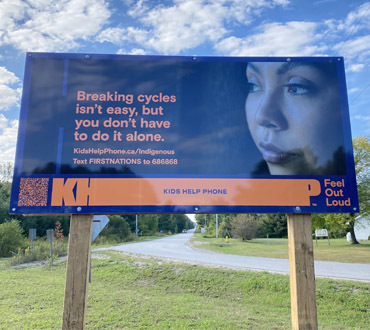Dealing with things like safer sex can be uncomfortable for some people. But thinking about safer sex in advance — and talking about it — can help you protect yourself. Here, Kids Help Phone shares information about sexually transmitted infections (STIs) and safer sex.
What do we mean by safer sex?
If you choose to have sex, keep in mind there may be both risks and benefits involved. Your sexual health is important for your overall well-being, and can have a positive effect on your physical and emotional health. But sex can also increase your risk for STIs and unplanned pregnancy (if applicable). If you’re thinking about having sex with someone, knowing about safer sex can help you protect yourself against STIs and unplanned pregnancy (if applicable).
What are STIs?
STIs come from bacteria, a virus or a parasite. They can be spread through sexual activity (e.g. oral sex, vaginal sex, anal sex, etc.), sharing needles, skin-to-skin contact and, more rarely, sharing certain household items (e.g. razors, etc.). Some of the most common STIs include:
- human papillomavirus (HPV)
- genital warts
- chlamydia
- genital herpes
- gonorrhea
- hepatitis B
- human immunodeficiency virus (HIV) and acquired immunodeficiency syndrome (AIDS)
- syphilis
- trichomoniasis
Some STIs have no effects/symptoms, while others have short- and/or long-term effects. Common signs of a STI may include:
- pain or burning during urination
- itchiness and discomfort
- vaginal/penile discharge
- vaginal bleeding
- flu-like symptoms (e.g. fatigue, fever, a rash, vomiting, diarrhea, etc.)
Some STIs are treatable with things like medication, while others are more difficult to treat or have no cure. But there may still be medicine that can help manage the symptoms. If you have questions or are concerned about STIs, you can reach out to a doctor/nurse or sexual health clinic for support.
How can I protect myself?
In order to protect yourself from STIs and/or unplanned pregnancy (if applicable), it’s good to have the facts about the different prevention options available. First, you can have an open conversation with your partner(s) about your sexual health to ensure you’re prepared and on the same page. Sharing your sexual histories and choosing how you’d like to protect yourselves are good places to start.
The following safer sex tips can help you prevent STIs (and, in some cases, unplanned pregnancy, if that’s applicable to you):
- use a condom (internal or external)
- use a dental dam
- use gloves
- practice abstinence
- get vaccinated against things like HPV and hepatitis B
- avoid sexual activity with a partner who has a STI
It’s important for you and your partner(s) to get tested for STIs regularly. You can visit a doctor/nurse or a sexual health clinic for a STI test and for more information about protecting yourselves.
If you have questions/concerns about safer sex and your sexual health, it’s a good idea to talk to someone about it. You can reach out to a doctor/nurse or sexual health clinic for more information and support.












